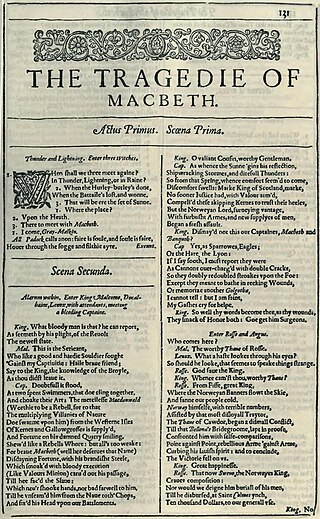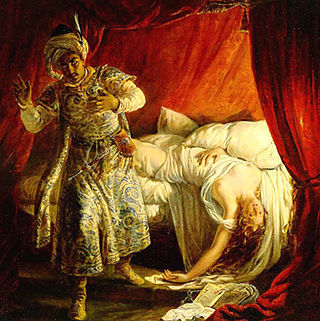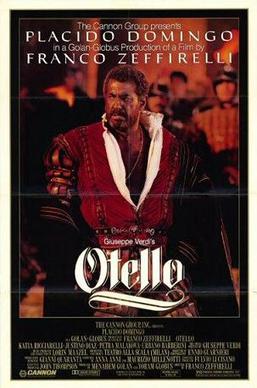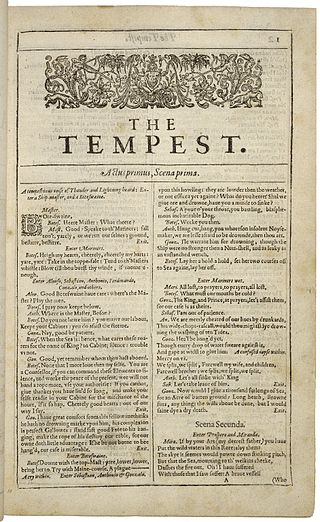Related Research Articles

The Tragedy of Hamlet, Prince of Denmark, usually shortened to Hamlet, is a tragedy written by William Shakespeare sometime between 1599 and 1601. It is Shakespeare's longest play. Set in Denmark, the play depicts Prince Hamlet and his attempts to exact revenge against his uncle, Claudius, who has murdered Hamlet's father in order to seize his throne and marry Hamlet's mother. Hamlet is considered among the "most powerful and influential tragedies in the English language", with a story capable of "seemingly endless retelling and adaptation by others". It is widely considered one of the greatest plays of all time. Three different early versions of the play are extant: the First Quarto ; the Second Quarto ; and the First Folio. Each version includes lines and passages missing from the others.

Macbeth is a tragedy by William Shakespeare. It is thought to have been first performed in 1606. It dramatises the damaging physical and psychological effects of political ambition on those who seek power. Of all the plays that Shakespeare wrote during the reign of James I, Macbeth most clearly reflects his relationship with King James, patron of Shakespeare's acting company. It was first published in the Folio of 1623, possibly from a prompt book, and is Shakespeare's shortest tragedy.

Othello is a tragedy written by William Shakespeare, around 1603. The story revolves around two characters, Othello and Iago.

The Tragedy of Romeo and Juliet, better known as Romeo and Juliet, is a play written by William Shakespeare early in his career about the romance between two Italian youths from feuding families. It was among Shakespeare's most popular works during his lifetime and, along with Hamlet, is one of his most frequently performed. Today, the title characters are regarded as archetypal young lovers.

William Shakespeare was an English playwright, poet and actor. He is widely regarded as the greatest writer in the English language and the world's pre-eminent dramatist. He is often called England's national poet and the "Bard of Avon". His extant works, including collaborations, consist of some 39 plays, 154 sonnets, three long narrative poems and a few other verses, some of uncertain authorship. His plays have been translated into every major living language and are performed more often than those of any other playwright. Shakespeare remains arguably the most influential writer in the English language, and his works continue to be studied and reinterpreted.

Otello is an opera in four acts by Giuseppe Verdi to an Italian libretto by Arrigo Boito, based on Shakespeare's play Othello. It was Verdi's penultimate opera, first performed at the Teatro alla Scala, Milan, on 5 February 1887.

Arrigo Boito was an Italian librettist, composer, poet and critic whose only completed opera was Mefistofele. Among the operas for which he wrote the libretti are Giuseppe Verdi's monumental last two operas Otello and Falstaff as well as Amilcare Ponchielli's La Gioconda.

This article presents a possible chronological listing of the composition of the plays of William Shakespeare.

Otello is an opera in three acts by Gioachino Rossini to an Italian libretto by Francesco Berio di Salsa after William Shakespeare's play Othello, or The Moor of Venice; it was premiered in Naples, Teatro del Fondo, 4 December 1816.
Othello is a tragic play by William Shakespeare, believed to have been written in 1603.

Mario Caserini was an Italian film director, as well as an actor, screenwriter, and early pioneer of film making in the early portion of the 20th century. Caserini was born in Rome, Italy, and was married to early 20th-century Italian actress Maria Caserini. His 1906 film Otello is believed to be the earliest film adaptation of the William Shakespeare play Othello.
Macbeth is a play by William Shakespeare.

Romeo Montague is the male protagonist of William Shakespeare's tragedy Romeo and Juliet. The son of Lord Montague and his wife, Lady Montague, he secretly loves and marries Juliet, a member of the rival House of Capulet, through a priest named Friar Laurence.

Otello is a 1986 film based on the Giuseppe Verdi opera of the same name, which was itself based on the Shakespearean play Othello. The film was directed by Franco Zeffirelli and starred Plácido Domingo in the title role, Katia Ricciarelli as Desdemona and Justino Díaz as Iago. For the film's soundtrack, Lorin Maazel conducted the Orchestra and Chorus of the Teatro alla Scala. The film premiered in West Germany on 28 August 1986 and received a U.S. theatrical release on 12 September 1986. It was nominated for a Bafta Award and a Golden Globe for Best Foreign Language Film.
Macbeth is a silent Italian 1909 film adaptation of the William Shakespeare play Macbeth. It was the second Macbeth film released that year, and is the third film version of the play. The film was directed by Mario Caserini, and starred Dante Cappelli, Maria Caserini, Amleto Palormi, and Ettore Pesci. The running time is 16 minutes and it is a black-and-white film.

Maria Caserini was an Italian stage and film actress, as well as a pioneer of filmmaking during the early 20th century. She often starred in adaptations of stage and film productions for the works of William Shakespeare.

Othello is a 1955 Soviet romantic drama film directed by Sergei Yutkevich, based on the play Othello by William Shakespeare. It was entered into the 1956 Cannes Film Festival, where Yutkevich received the Best Director Award.

The Tempest is a play by William Shakespeare, probably written in 1610–1611, and thought to be one of the last plays that he wrote alone. After the first scene, which takes place on a ship at sea during a tempest, the rest of the story is set on a remote island, where Prospero, a wizard, lives with his daughter Miranda, and his two servants: Caliban, a savage monster figure, and Ariel, an airy spirit. The play contains music and songs that evoke the spirit of enchantment on the island. It explores many themes, including magic, betrayal, revenge, and family. In Act IV, a wedding masque serves as a play-within-a-play, and contributes spectacle, allegory, and elevated language.

In addition to its appearance in the theatre, the character of Othello from the tragic play by William Shakespeare has appeared in many examples in art and culture since being authored by Shakespeare in the early 16th century.
References
- ↑ Jackson, Russell (2020-12-17). The Cambridge Companion to Shakespeare on Screen. Cambridge University Press. ISBN 978-1-108-42116-4.
- ↑ Goble, Alan (2011-09-08). The Complete Index to Literary Sources in Film. Walter de Gruyter. ISBN 978-3-11-095194-3.